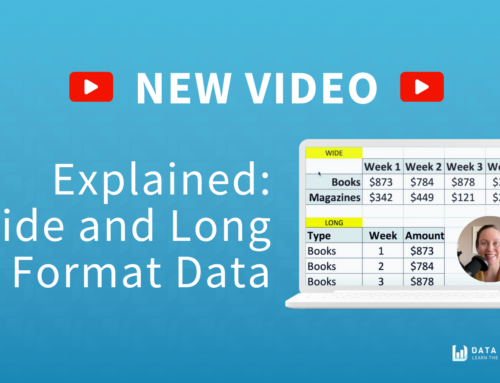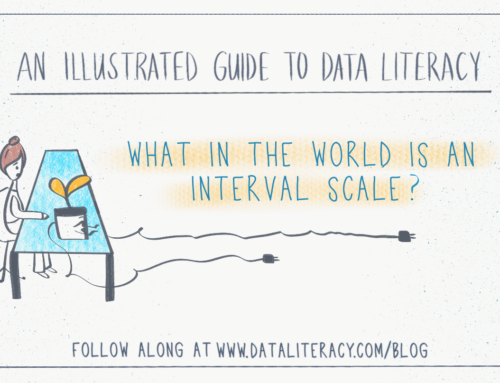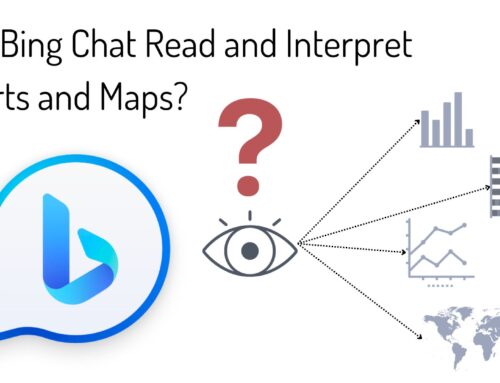Working with Data Professionals (when you aren’t one!)
Part 3: Managing a Team of Data Professionals

The author of this blog series is Anna-Maria Steverson, Content Analytics Manager at Netflix. The series it titled “Working with Data Professionals (when you aren’t one!)” The first post in the series is titled “What Do Data Professionals DO?” The second post is titled “How to Hire a Data Professional.”
Anna also teaches our Data Literacy series, and will be leading the live Data Literacy Level 1 course being offered to the public starting on February 28th, 2022. The thoughts she shares in this series come from her own experience working in data roles at Fortune 500 companies.
Being a people leader of a team of data professionals involves many of the same activities of people leadership for any team. However, if you are not a data professional yourself, there are some aspects that will help set you and your team up for long term success if you are attentive to them.
Data professionals, like all employees, thrive under people leaders who show empathy, act as an advocate, and provide constructive feedback to help them grow. These actions can be more difficult to pull off well if you are not familiar with the details of the work your team does. This is not unique to data teams but there does seem to be more of a tendency to place individuals without a data background in charge of data functions than other technical domains. However, if you are humble about the areas you are not strong in and lean into the areas you are strong in, there is no reason you can’t successfully lead a data team.
Be Humble

If you do not have a data background and your data literacy is not at the level you might want it to be, it is important to be open and honest about that. Your team of data professionals will notice sooner rather than later so there is little point trying to come across as if you know more than you do. Little will alienate your team more than you dropping buzzwords with little substance to back them up!
Instead, acknowledge that you have more to learn in this space. There need not be self-flagellation or anything of that sort. Plenty of business leaders do not have a background in data work. There is no shame in it! The more you are open about what you want to learn and demonstrate curiosity about your team’s process and outputs, the more quickly you will gain their trust and partnership in continuing your education.
When it comes to the day to day work of managing the work of the team and communicating to the business, you might consider elevating a more senior member of your team to technical lead, if they show the aptitude for it. This can greatly help when it comes to coordinating the resources needed to get work done, assessing the level of effort projects will take, and helping think through the tradeoffs of alternative methodologies that will achieve the needs of the project in a more efficient way. This also ensures there is an individual there for your team members to bounce ideas off of, review their work, and help them grow technically.
Regardless of whether you have a technical lead or not, it is important to involve your team in the process of planning work. The phrase “Let me get back to you on the feasibility of that” should be used far more often than “Sure, I think we can do that no problem!” If you’re not familiar with the details of the work or your data ecosystem, some work items may seem very easy to accomplish when they are not. Alternatively, some work items that are quite simple may seem very difficult. Lean on your team to help you know which is which before committing to delivering something for the business.
Be An Advocate for Growth

You cannot depend entirely on your team to educate you or on learning by osmosis. Taking data literacy classes, reading books on the subject, and reading articles and blogs on new applications and developments in the data world will all go a long way to helping you on your journey.
This will help avoid a common pitfall where you are not a good partner in the growth of your team in their field. It can be easy to look at the outputs of your team and struggle to understand “What’s next?” It may seem your team is well-suited to address the needs of the business today. However, if you are not committed to ensuring your team has opportunities to learn, explore, and experiment, chances are they will be unable to meet the needs of the business in the future.
Make it clear that learning and development is a part of their job that you consider to be as important as delivering requests for the business. Ensure their workload is not so heavy that they don’t have the opportunity to try new techniques or explore different angles. Negotiate for enough budget to send them, and yourself, to industry conferences or trainings where you can learn how other businesses are doing things and about advances in technology. Many conferences have business leader tracks that are designed for non-data professionals in addition to the technical tracks geared towards members of your team.
Be Confident

All that said, it’s important to remember to lean into the strengths you have. Chances are you are an expert in the domain that your team is working in. You may have excellent working relationships with a variety of different departments. You likely understand the nuances of the strategies your organization is attempting and how the data needs tie into that. All of these strengths can be leveraged to make your team far more effective than they might be otherwise.
You may have noticed that there is never a shortage in the volume of data requests from the business. If your team answers one question, chances are it will lead to three more! Your strength in the domain and understanding of the critical strategies will help you understand what decisions or actions will be taken – or not taken – as a result of the information your team provides. This will, in turn, help sort through the requests and identify which ones are high priority and which ones are just curiosity asks. Your ability to ensure your team is spending time on the things that matter most will go a long way to gaining their trust.
Be a Connector

As you proceed along your data journey, you can also help bring your peers along. You are in an excellent position to understand the perspective they might be approaching your team’s work with and act as a translator, providing them with what they need to know about the work in a language they can readily understand. This goes both ways, as you can also translate the business perspective to your team, giving them the context they need to do great work.
Your relationships and connections within the organization also have the potential to greatly amplify the impact of the work your team does and how widely it is leveraged. You likely know who needs to be aware of the insights or outputs your team is generating and can spend a good deal of your time connecting with those individuals and evangelizing with the organization as a whole.
It can definitely be intimidating to take on leadership of a team whose work you are unfamiliar with, however, it is a great opportunity to further your own growth in data as well as use your strengths to help increase the impact of your team.
In the next and final post of this series, I’ll talk about some other ways that leaders, and anyone else that works with data professionals, can increase the impact of those professionals.






